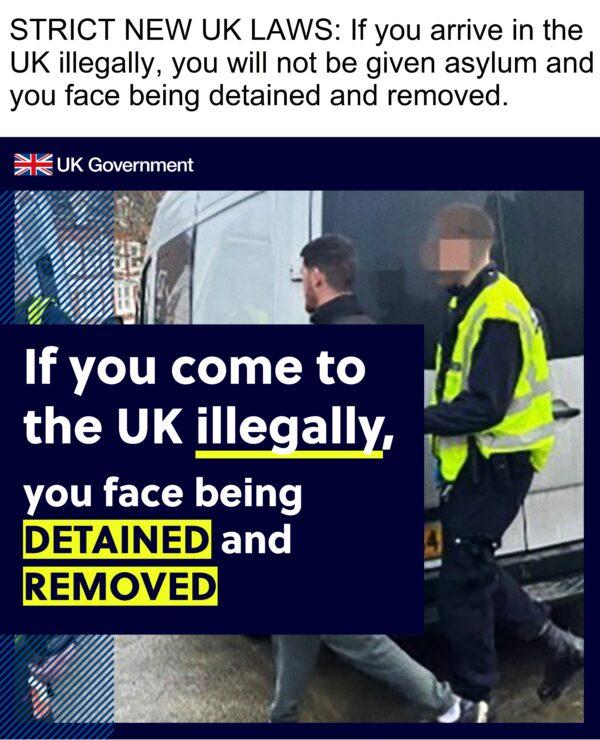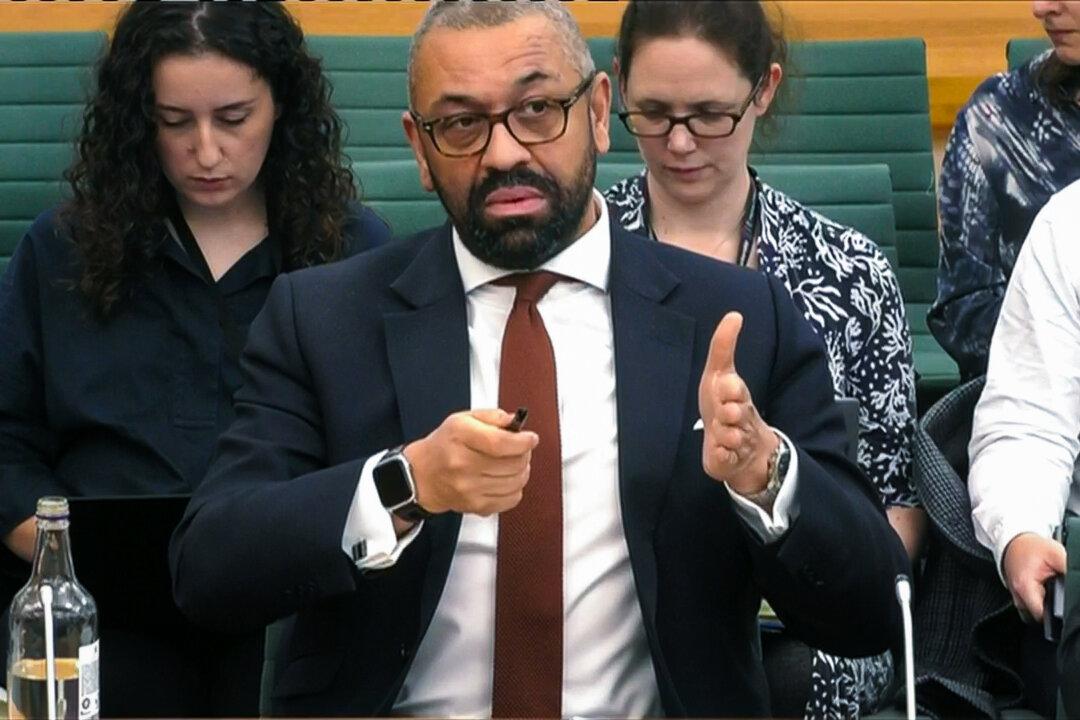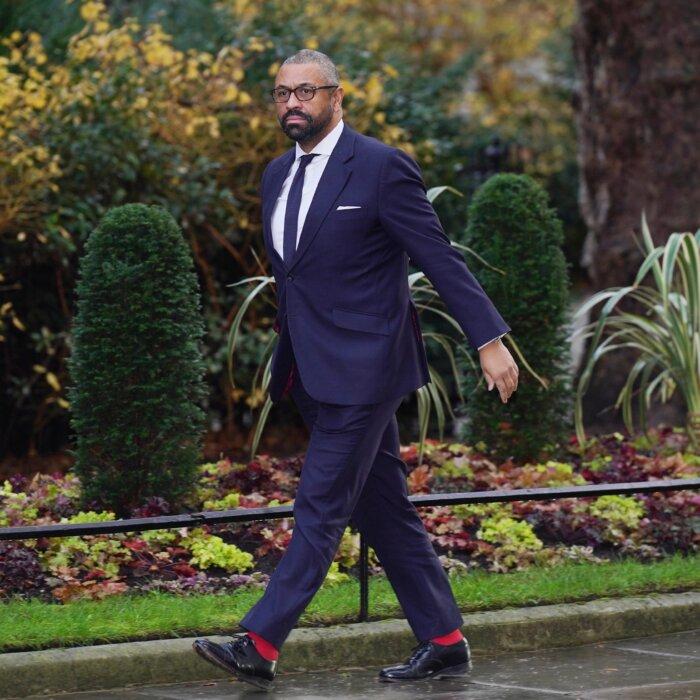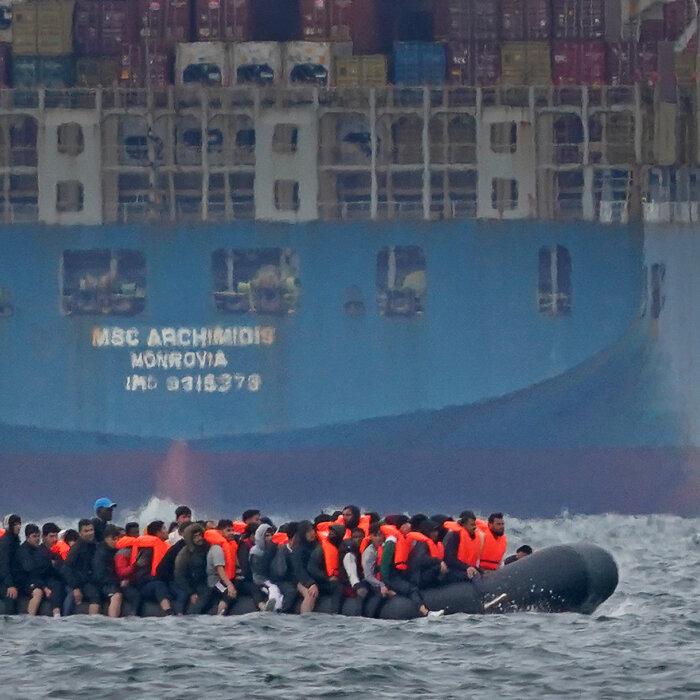Home Secretary James Cleverly has admitted to MPs up to 33,085 illegal immigrants who are already in Britain but whose applications for asylum are “inadmissible” could conceivably be sent to Rwanda.
The Home Affairs Committee grilled Mr. Cleverly and two Home Office officials on Wednesday about the status of the 33,085 immigrants, who are on bail and living in hotels or in other temporary accommodation.
Conservative MP Tim Loughton asked, “What is the status of those people who’ve come across the Channel since the Illegal Migration Act came into force, how many of them are there and what is their actual status?”
Sir Matthew Rycroft, the permanent under-secretary of state at the Home Office, replied, “They have sought to claim asylum and we are continuing to manage ... they are in the asylum caseload.”
Dan Hobbs, the director general of the Migration and Borders group at the Home Office, then stepped in: “We do not have a safe country of return for the vast majority of those individuals. So they are here on bail, pending the conclusion of the Safety of Rwanda Bill and then the movement forward of our relocation agreement with Rwanda.”
“So they are inadmissible to the system under the terms of the Illegal Migration Act. If they would otherwise be destitute, we provide support to those individuals,” he added.
Mr. Loughton then asked him, “So how many people are we talking about?”
MP Asks How Many Illegal Immigrants Are ‘Missing’
Mr. Loughton then said: “They have no legal status in this country under the terms of the Illegal Migration Act—other than those who have criminal records that require them to be detained in a secure facility—they are at large in the UK, and could turn out to be missing on a greater scale than Mr. [Simon] Ridley could account for in November.”Mr. Cleverly then intervened and said: “I don’t agree with the word missing. I think that word implies something which doesn’t reflect the circumstances.”
He then said: “So when people do disengage—I think that’s a more accurate word—we respond to that ... I’m not going to go into detail of how exactly we do that because that will undermine the effectiveness of the work that we do. But we do look for people and find them and where we’re able to, [we] return them to their country of origin.”
Mr. Loughton said: “There is a growing cohort of people in limbo effectively, since the Illegal Migration Act came in ... and there’s a fairly strong possibility that we do not know where a large number of them are, which is the definition of missing.”
“That figure can only grow in the absence of the Rwanda scheme getting under way or us having other deportation agreements with other countries,” he added.
Mr. Cleverly said much would depend on the successful passing through Parliament of the Safety of Rwanda Bill, but he said it was only one part of the Home Office’s efforts to tackle illegal immigration and he pointed to the successful deportation agreement negotiated with Rwanda.
The chair of the committee, Labour MP Diana Johnson, then asked Mr. Cleverly: “Of the 33,085 that are recognised now within the scope of the Illegal Migration Act, how many of them are you expecting to send to Rwanda?”
“Well, that will depend on which other countries we have return agreements with,” he replied.
She pressed him and he added: “Rwanda is not the only safe country though. The point is, there are other safe countries, we continue to negotiate returns agreements with other countries. So it’s entirely feasible that a significant number within that cohort will be returned to their country of origin.”
Ms. Johnson said: “But what do you expect in terms of the numbers to Rwanda, because that’s your flagship policy, you’re pushing this through the Commons and the Lords. So how many of that 33,000 do you expect will go to Rwanda?”
Cleverly Highlights Albania Deportation Agreement
The home secretary replied: “You are asking me to speculate about a figure, which no-one can give you that figure because, as I say, if you'd asked me this before we came to the arrangement with Albania, the answer is very, very, very different.”
Ms. Johnson once again asked him to give a figure and Mr. Cleverly replied, “You keep asking the same question, the answer is therefore going to be the same.”
Mr. Cleverly and Ms. Johnson also clashed over her use of the phrase “backlog” to describe the 94,062 illegal immigrants whose claims for asylum have not yet been processed, a figure which includes the 33,085 who could be sent to Rwanda.
Mr. Cleverly said it was a “queue” rather than a backlog.
On Tuesday, Mr. Cleverly met the French interior minister Gérald Darmanin to discuss Anglo-French efforts to combat people trafficking across the English Channel.







